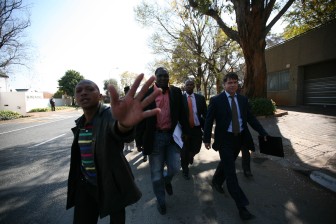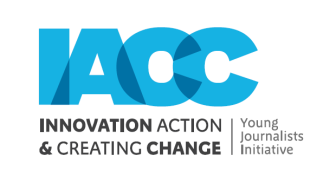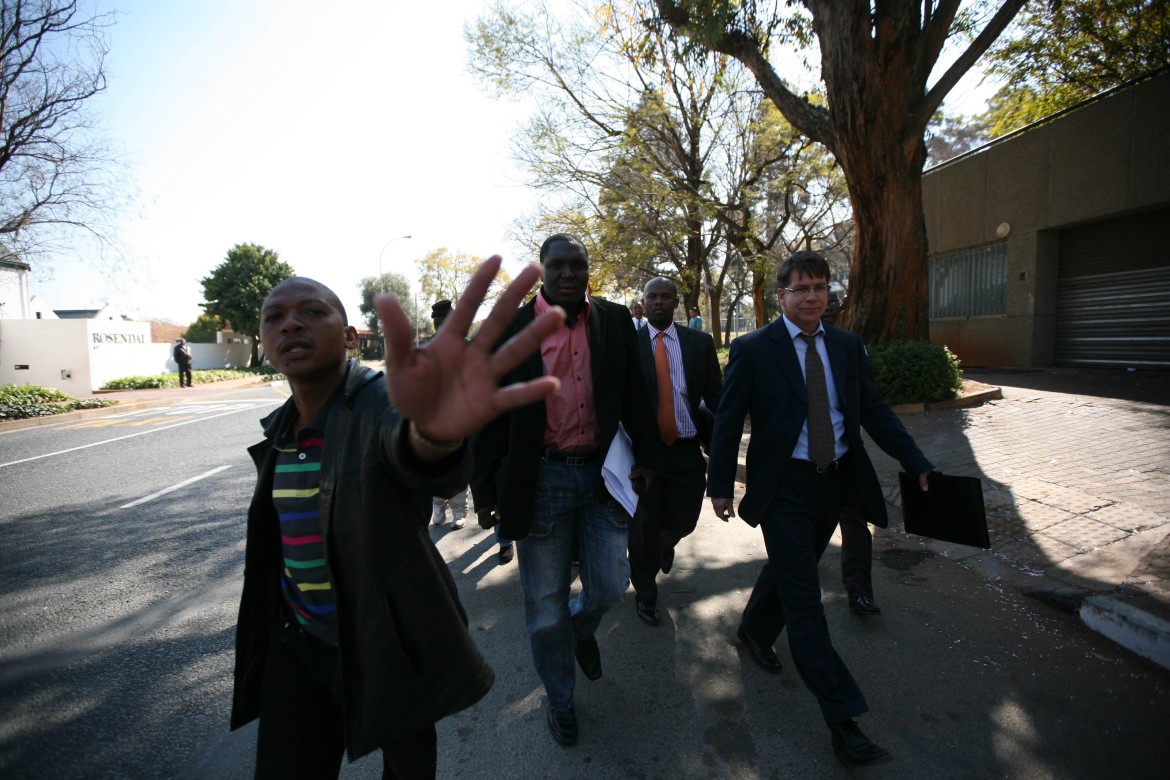
South African journalist Mzilikazi wa Afrika (second from left) being arrested in Johannesburg
Immediately after the Global Investigative Reporters Conference (GIJC2013) opened for four-days of meetings this weekend, the first showcase panel assembled to just how dangerous it has become to speak truth to power.
Investigative reporters and editors from Jordan, Peru, England and South Africa discussed their current projects and the dangers facing investigative journalist in their parts of the world.
![]() When ex-U.S. Army Private “Bradley Manning dropped about 2GB of data that we had to pore over to determine what was in the public interest to know,” said David Leigh, Executive Editor of Investigations at The Guardian. “So we had to learn how to handle this data. So … data has had a huge impact on the way we conduct investigations in journalism.”
When ex-U.S. Army Private “Bradley Manning dropped about 2GB of data that we had to pore over to determine what was in the public interest to know,” said David Leigh, Executive Editor of Investigations at The Guardian. “So we had to learn how to handle this data. So … data has had a huge impact on the way we conduct investigations in journalism.”
Journalists from Jordan, South Africa and Peru also weighed in on the state of investigations in their countries.
![]() “Just like with climate change, things are getting worse and worse for journalists because politicians are getting more sophisticated,” said Mzilikazi wa Afrika, a South African journalist with the Sunday Times of South Africa. “They´re getting more money to hire people to follow you, intimidate you, harass you, and probably kill you.”
“Just like with climate change, things are getting worse and worse for journalists because politicians are getting more sophisticated,” said Mzilikazi wa Afrika, a South African journalist with the Sunday Times of South Africa. “They´re getting more money to hire people to follow you, intimidate you, harass you, and probably kill you.”
Indeed, Afrika, president of Forum of African Investigative Reporters (FAIR), has initiated investigations that have earned him increased scrutiny across the African continent, where he’s been harassed, jailed, and followed; issues he says journalists there face often.
“I have been targeted several times, my phone was illegally bugged which was proven,” he said. “Actually, as we speak, one of the heads of intelligence in South Africa is under suspension because it was proven beyond a reasonable doubt that he bugged my phone and the phones of my colleagues.”
Much of the session focused on the stories each panelist and their organizations had completed — from large-scale cheating in high school and abuse of mentally disabled children in the Arab world, to the mega-leaks that have stoked global outrage, handled by global media interests.
After the panel, Afrika offered a tip to investigative journalists going forward.
“Journalists have to become more clever and more sophisticated than the people who are trying to destroy them,” he said. “They have the resources and they have the power, but you must always stay ahead.”


